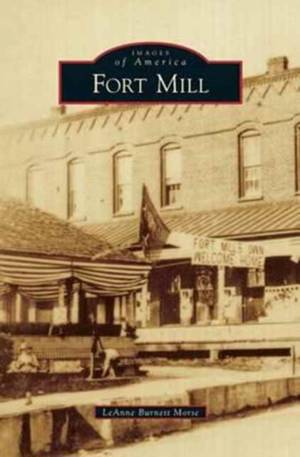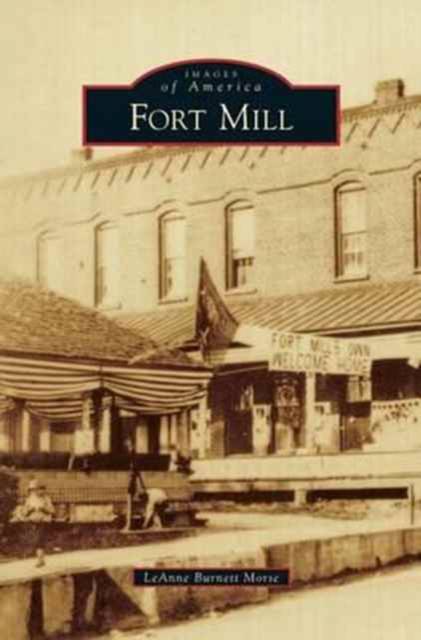
- Afhalen na 1 uur in een winkel met voorraad
- Gratis thuislevering in België vanaf € 30
- Ruim aanbod met 7 miljoen producten
- Afhalen na 1 uur in een winkel met voorraad
- Gratis thuislevering in België vanaf € 30
- Ruim aanbod met 7 miljoen producten
Zoeken
Omschrijving
More than 250 years ago, near the border where the Carolina colony was divided into north and south, Catawba Indians welcomed the first white settlers to the riverbank at the Nation Ford, and the seeds of a town were sown. Since that time, the area that would become Fort Mill Township has persevered and prospered. From its early days, when Scots-Irish immigrants built the gristmill that gave the town its name, to the explosive growth of the 21st century, the story of Fort Mill has been written by larger-than-life characters like Col. Elliott White Springs, heroic Medal of Honor recipients, resilient cotton farmers, dedicated educators, determined civil rights advocates, and proud mill workers. Fort Mill has set itself apart as a place with a distinct personality and an enduring legacy. Self-sufficiency, Southern grit, and small-town values are just a few of the distinguishing characteristics of this unique town.
Specificaties
Betrokkenen
- Auteur(s):
- Uitgeverij:
Inhoud
- Aantal bladzijden:
- 130
- Taal:
- Engels
Eigenschappen
- Productcode (EAN):
- 9781531671068
- Verschijningsdatum:
- 20/04/2015
- Uitvoering:
- Hardcover
- Formaat:
- Genaaid
- Afmetingen:
- 170 mm x 244 mm
- Gewicht:
- 412 g

Alleen bij Standaard Boekhandel
+ 88 punten op je klantenkaart van Standaard Boekhandel
Beoordelingen
We publiceren alleen reviews die voldoen aan de voorwaarden voor reviews. Bekijk onze voorwaarden voor reviews.











